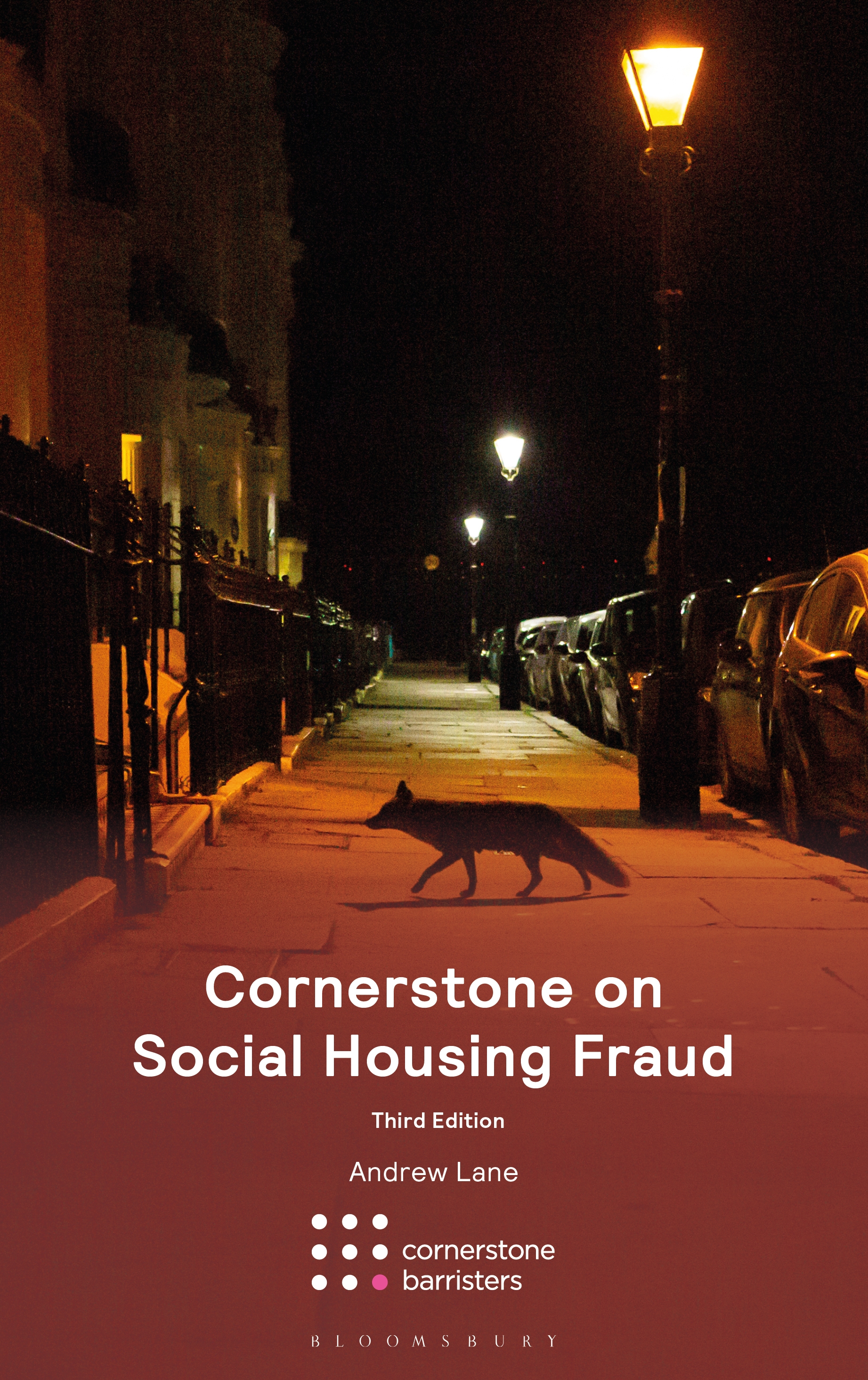Q & A with Andrew Lane
Andrew Lane is the author of the 3rd Edition of Cornerstone on Social Housing Fraud.
This will be included in our Local Government Law and Property and Land Law online services.
Are there any legislative changes that readers should be aware of that have impacted social housing and are covered in the 3rd edition of Cornerstone on Social Housing Fraud?
The most obvious piece of legislation – which at the time of writing this response has yet to receive royal assent (but should do shortly) – is the Renters’ Rights Bill. Though most of the focus has been on its likely impact in the private-rented sector, the ending of fixed term assured tenancies and the moving of shared ownership agreements out of the Housing Act 1988 (assured tenancy) regime will have an obvious effect on the enforcement mechanisms when housing fraud or misuse is discovered. The book will address this legislation in its final legislative form.
Another piece of draft legislation currently going through Parliament is the Public Authorities (Fraud, Error, and Recovery) Bill. Though there is a particular emphasis here on Department for Work and Pensions powers to address fraud and errors in the benefits system, this legislation will also give the Public Sector Fraud Authority powers to investigate and recover fraud in any public authority.
Lastly, I would comment on the Data (Use and Access) Act 2025, which is designed to ‘modernise’ data protection laws. It also seeks to clarify legitimate interests for processing data, introduces digital ID systems, relaxes restrictions on automated decision-making for non-sensitive data, and relaxes some cookie consent requirements for security-related purposes.
Are there any trends which you think have the potential to disrupt the law of social housing fraud over the next few years?
The biggest factor holding back effective housing fraud detection and prevention is where a social landlord does not sufficiently prioritise and resource this issue. There is ample and consistent research proving that when this happens successful results (e.g. recovery of properties) are reduced.
For example, Tenet Law and Newid Consulting produced a paper entitled ‘Fraud NOT on the agenda’ which stated:
‘All housing associations state that they take fraud seriously. That being said, low positioning on risk registers and limited investment in counter-fraud activity – in part driven by a severe lack of statistical evidence reinforced by nil returns – contributes to confirmation bias and the sector-wide underestimation of risk, especially when compared with other sectors.’
Another factor making the misuse of social housing all the greater is the increasing prevalence of short-term letting through such sites as Airbnb and Booking.com, which inevitably will and in fact does find its way into the social housing sector (legitimately or otherwise).
Were there any interesting case law developments that you encountered when updating the 3rd edition of Cornerstone on Social Housing Fraud?
There have been very limited case law developments in the core areas of housing fraud since the second edition of the book. For example, Poplar HARCA v Begum [2017] EWHC 2040 (QB); [2017] H.L.R. 42 is still the only reported authority on unlawful profit orders.
One case that did attract a lot of attention, at least in the legal world, was the Court of Appeal’s recent (surprising in my view) judgment in the only or principal home case of Hackney LBC v Weintraub [2024] EWCA Civ 1561; [2025] 1 W.L.R. 1766. It decided that to satisfy the tenant condition in section 81 of the Housing Act 1985, it was not necessary for a tenant who is away from the dwelling to intend to return to it as a tenant. Rather, it was sufficient for the tenant genuinely to believe the dwelling to be their only or principal home and to intend to return to use it as such, albeit once their right to buy has been exercised.
Finally, who could forget the Chancery Division case of Kensington & Chelsea RLBC v Airbnb Payments UK Ltd [2022] EWHC 2209 (Ch) where the court granted the authority's application for a Norwich Pharmacal order for pre-action disclosure against the payments arm of AirBnB in order to facilitate the identification of social housing tenants who were unlawfully sub-letting their properties.
What is a common misconception about social housing fraud that you see from non-legal practitioners working in social housing?
That’s a very interesting question, and there have consistently been calls for the regulator to take a more active role in ensuring all social landlords take the issue of housing fraud sufficiently seriously.
I am not sure there is an easy (or one) answer.
Some see it as a victimless activity when in fact it may well have stopped a genuine household in housing need in fact entitled to the accommodation subject to the fraud from being finally and sufficiently housed.
Overall, however, I think that even where recognised as being a serious issue, housing fraud and its detection and prosecution is often seen as not being sufficiently serious when it comes to the allocation of resources, including staffing. That to me underplays the importance of the integrity and transparency required for any well-run social housing resource.

